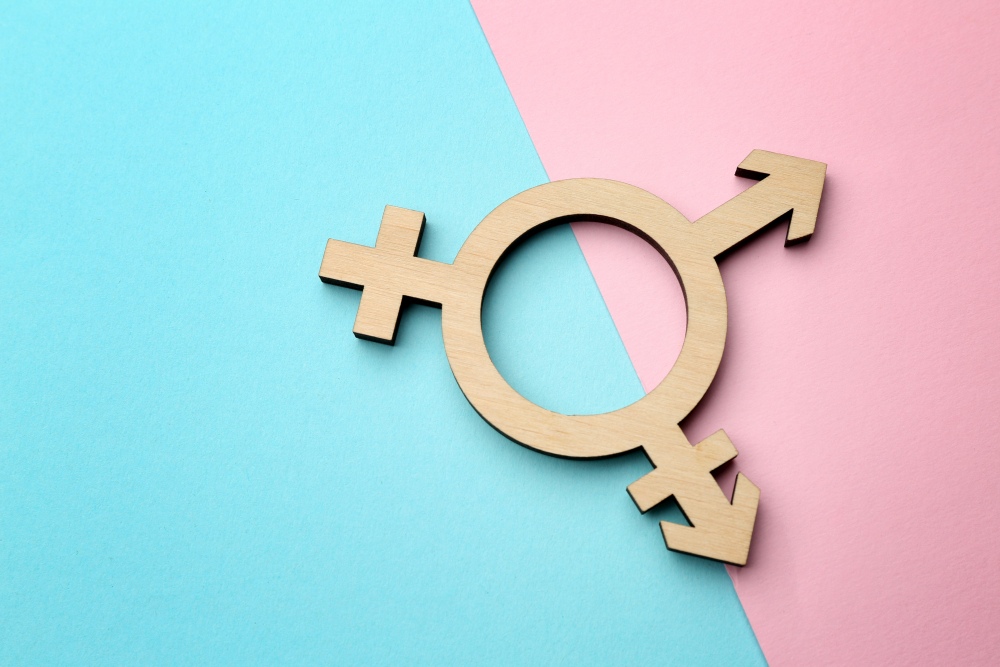Gender Affirming and Aesthetic Surgeries in the LGBT Community

- Celebrating Self-Expression: The Intersection of Gender Affirmation and Aesthetic Enhancement
- A New Chapter: Empowering Transgender and Non-Binary Individuals through Surgical Transformation
- Beyond Binary: Navigating Unique Challenges and Celebrating Diversity in the LGBT Community
- The Surgeon’s Role: Providing Compassionate Care and Specialized Expertise in Gender Affirming and Aesthetic Surgeries
Embracing diversity, empowering transgender and non-binary individuals, our surgeon provides specialized care in gender-affirming and aesthetic surgeries, celebrating self-expression in the LGBT community’s unique challenges.
Celebrating Self-Expression: The Intersection of Gender Affirmation and Aesthetic Enhancement
In recent years, there has been a significant shift towards embracing gender diversity and inclusivity. As a result, there has been increased recognition of the importance of gender affirmation and the role of aesthetic surgeries in the LGBT community. The intersection of gender affirmation and aesthetic enhancement provides individuals with the opportunity to express their authentic selves, celebrate their identities, and live their lives with confidence. In this article, we will explore the concept of celebrating self-expression through the intersection of gender affirmation and aesthetic enhancement, highlighting the positive impact it has on individuals in the LGBT community.
1. Empowerment through Self-Expression:
For many individuals in the LGBT community, gender affirmation and aesthetic enhancement surgeries play a transformative role in their journey towards self-acceptance and self-expression. These procedures provide a means for individuals to align their physical appearance with their gender identity, allowing them to feel more comfortable and confident in their bodies. The ability to express oneself authentically and be recognized for who they truly are fosters a sense of empowerment and liberation.
2. Enhancing Well-being and Mental Health:
Gender affirmation and aesthetic enhancement surgeries have been shown to have a positive impact on the mental health and overall well-being of individuals in the LGBT community. The ability to align one’s physical appearance with their gender identity can alleviate gender dysphoria and improve overall self-esteem. These surgeries contribute to a sense of wholeness and congruence, promoting emotional well-being and reducing psychological distress.
3. Customized Approaches and Tailored Solutions:
The field of gender affirmation and aesthetic enhancement surgeries recognizes the unique needs and experiences of individuals in the LGBT community. Surgeons specializing in this area are committed to providing customized approaches and tailored solutions that respect the diversity of gender identities and expressions. They work closely with patients to understand their goals, concerns, and desires, ensuring that the surgical journey is a collaborative process that reflects each individual’s unique vision of self-expression.
4. Comprehensive Care and Support:
The intersection of gender affirmation and aesthetic enhancement requires comprehensive care and support throughout the surgical journey. Surgeons who specialize in these procedures prioritize creating a safe and supportive environment for their patients. They work closely with multidisciplinary teams, including mental health professionals, to provide comprehensive preoperative evaluations and postoperative support. This holistic approach ensures that patients receive not only excellent surgical outcomes but also the emotional and psychological support they need during the transformative process.
Celebrating self-expression through the intersection of gender affirmation and aesthetic enhancement has a profound impact on individuals in the LGBT community. It allows them to express their authentic selves, align their physical appearance with their gender identity, and live their lives with confidence and pride. By embracing customized approaches, providing comprehensive care, and recognizing the unique needs of individuals in the LGBT community, surgeons in this field contribute to the empowerment and well-being of their patients. The celebration of self-expression in gender affirmation and aesthetic enhancement surgeries is a testament to the evolving understanding and acceptance of gender diversity, fostering a more inclusive and affirming society for all.
A New Chapter: Empowering Transgender and Non-Binary Individuals through Surgical Transformation
Gender affirmation surgeries are transformative procedures that can profoundly impact the lives of transgender and non-binary individuals. These surgeries provide an opportunity for individuals to align their physical appearance with their gender identity, supporting their journey towards self-discovery, authenticity, and empowerment. In this article, we will explore the significance of these surgeries, the benefits they offer to transgender and non-binary individuals, and the importance of providing inclusive and specialized care throughout the surgical transformation process.
1. Embracing Identity and Authenticity:
Gender affirmation surgeries mark a new chapter in the lives of transgender and non-binary individuals. These procedures empower individuals to embrace their authentic selves, helping them to align their physical appearance with their inner sense of gender identity. By undergoing surgeries such as chest masculinization, breast augmentation, facial feminization, or genital reconstruction, individuals can experience a profound sense of congruence and enhanced well-being.
2. Enhancing Mental Health and Quality of Life:
Research has shown that gender affirmation surgeries have a positive impact on the mental health and overall quality of life of transgender and non-binary individuals. By alleviating gender dysphoria and improving body confidence, these surgeries contribute to reduced rates of depression, anxiety, and suicidal ideation. The transformative effects of these procedures extend beyond the physical, fostering a sense of wholeness, belonging, and increased self-esteem.
3. Tailored Surgical Approaches:
Gender affirmation surgeries require a specialized and individualized approach. Each patient’s unique goals, anatomical considerations, and personal circumstances must be taken into account. Surgeons with expertise in transgender and non-binary surgeries are adept at understanding the specific needs of their patients and tailoring surgical plans accordingly. This includes considerations such as creating natural-looking results, preserving sensation, and minimizing scarring to ensure the best possible outcomes.
4. Inclusive and Compassionate Care:
Providing inclusive and compassionate care is paramount in supporting transgender and non-binary individuals throughout their surgical transformation journey. Surgeons and healthcare professionals must create a safe and supportive environment where patients can express their needs and concerns openly. This involves respectful communication, sensitivity to gender identity and pronouns, and a commitment to addressing the unique challenges and experiences faced by the LGBT community.
5. Collaborative Approach and Postoperative Support:
The journey towards surgical transformation is not a solitary one. It requires a collaborative approach involving the patient, surgeons, mental health professionals, and other supportive healthcare providers. Surgeons who specialize in gender affirmation surgeries understand the importance of a multidisciplinary team and work closely with other experts to provide comprehensive care. This includes preoperative counseling, ongoing mental health support, and postoperative follow-up to ensure optimal physical and emotional recovery.
Gender affirmation surgeries represent a significant step towards empowerment and authenticity for transgender and non-binary individuals. By embracing their true selves through surgical transformation, individuals can experience improved mental health, enhanced quality of life, and a newfound sense of self-acceptance. It is essential to provide inclusive and specialized care, tailoring surgical approaches to meet individual needs, and fostering a supportive environment throughout the process. Through collaborative efforts and a commitment to compassionate care, the journey towards surgical transformation becomes a transformative and empowering experience for transgender and non-binary individuals.
Beyond Binary: Navigating Unique Challenges and Celebrating Diversity in the LGBT Community
The journey toward self-discovery and self-acceptance is a deeply personal and transformative one for individuals in the LGBT community. Gender identity and expression exist on a spectrum, transcending traditional binary notions. In this article, we explore the unique challenges faced by the LGBT community and the importance of celebrating diversity in the realm of gender-affirming and aesthetic surgeries.
1. Redefining Gender Norms:
The concept of gender is evolving, challenging societal norms and expectations. Transgender and non-binary individuals often face significant challenges in aligning their physical appearance with their gender identity. Gender-affirming surgeries offer a path toward self-actualization and congruence, enabling individuals to live authentically. It is vital to understand that gender identity is diverse and unique to each person, and surgical interventions play a significant role in supporting this journey.
2. Addressing Medical Disparities:
LGBT individuals, particularly transgender individuals, face disparities in access to healthcare and experienced bias within medical systems. This includes challenges in accessing gender-affirming surgeries. It is crucial for healthcare providers and surgeons to be aware of these disparities and work towards creating inclusive environments where all individuals can receive the care they deserve. By addressing these disparities, we can ensure that gender-affirming surgeries are accessible and safe for the entire LGBT community.
3. Tailored Surgical Approaches:
Gender-affirming surgeries require a nuanced and personalized approach. Every individual’s journey is unique, and surgeons must respect and honor their patients’ identities, preferences, and goals. By employing a patient-centered approach, surgeons can collaboratively develop surgical plans that best align with their patients’ desires. Tailored surgical approaches allow for the affirmation and celebration of individuality, ensuring that each patient’s unique experience is honored.
4. Celebrating Diversity:
Celebrating diversity is at the heart of the LGBT community. Gender-affirming and aesthetic surgeries provide opportunities for individuals to express themselves authentically, without conforming to societal expectations. It is essential to create spaces where individuals from all backgrounds and identities feel welcomed, supported, and celebrated. By embracing diversity, we foster a sense of belonging and promote positive experiences for those seeking surgical interventions.
5. Comprehensive Support and Care:
Navigating the complexities of gender-affirming and aesthetic surgeries can be emotionally and physically challenging. Providing comprehensive support and care throughout the surgical journey is paramount. Surgeons should collaborate with mental health professionals, support groups, and other healthcare providers to ensure a holistic approach to patient care. By addressing the unique challenges and emotional aspects of these surgeries, individuals in the LGBT community can embark on their journeys with confidence and resilience.
Embracing diversity and navigating the unique challenges faced by the LGBT community are essential in the realm of gender-affirming and aesthetic surgeries. By redefining gender norms, addressing medical disparities, employing tailored surgical approaches, celebrating diversity, and providing comprehensive support and care, surgeons and healthcare providers can create inclusive spaces that empower individuals in their pursuit of self-expression and authenticity. Together, we can celebrate the rich diversity within the LGBT community and contribute to positive and transformative experiences in gender-affirming and aesthetic surgeries.
The Surgeon’s Role: Providing Compassionate Care and Specialized Expertise in Gender Affirming and Aesthetic Surgeries
In the realm of gender affirming and aesthetic surgeries, the role of the surgeon extends far beyond technical proficiency. It encompasses providing compassionate care, fostering trust, and possessing specialized expertise to cater to the unique needs of the LGBT community. The journey towards gender affirmation and self-expression is deeply personal, and surgeons play a crucial role in guiding individuals through this transformative process. In this article, we will explore the surgeon’s role in providing compassionate care and specialized expertise in gender affirming and aesthetic surgeries.
1. Creating a Safe and Inclusive Environment:
The surgeon’s first responsibility is to establish a safe and inclusive environment where individuals from the LGBT community feel comfortable expressing their desires and concerns. This involves developing open lines of communication, actively listening to patients’ stories and aspirations, and demonstrating sensitivity to their unique experiences. By fostering a supportive space, surgeons build trust and create a foundation for successful surgical outcomes.
2. Customized Surgical Approaches:
Gender affirming and aesthetic surgeries require a deep understanding of the diverse needs and desires of transgender and non-binary individuals. Surgeons must have specialized expertise in these procedures, keeping abreast of the latest surgical techniques and advancements. By staying informed and collaborating with other medical professionals in the field, surgeons can offer a range of tailored surgical approaches that align with each individual’s unique goals and anatomy.
3. Emotional Support and Psychological Well-being:
Undergoing gender affirming and aesthetic surgeries can have a profound emotional impact on individuals. Surgeons must recognize the importance of addressing the psychological well-being of their patients throughout the surgical journey. This may involve collaborating with mental health professionals, providing resources for support groups, and offering post-operative counseling. By acknowledging the emotional aspects of these surgeries, surgeons play a vital role in promoting overall well-being and enhancing the holistic experience of their patients.
4. Continual Education and Advocacy:
To provide the best possible care, surgeons must actively engage in continual education and advocacy for the LGBT community. Staying informed about the evolving landscape of gender affirming surgeries, understanding the unique challenges faced by transgender and non-binary individuals, and advocating for their rights and access to care are crucial responsibilities. Surgeons should actively contribute to research, participate in conferences, and collaborate with organizations dedicated to advancing the field of gender affirming and aesthetic surgeries.
The surgeon’s role in gender affirming and aesthetic surgeries within the LGBT community extends beyond technical expertise. It encompasses providing compassionate care, creating safe and inclusive environments, offering tailored surgical approaches, addressing emotional well-being, and engaging in ongoing education and advocacy. By fulfilling these responsibilities, surgeons play a significant role in empowering individuals to embrace their true selves, fostering positive self-image, and facilitating transformative journeys towards gender affirmation and self-expression. Through their specialized expertise and commitment to compassionate care, surgeons contribute to the overall well-being and empowerment of the LGBT community.



